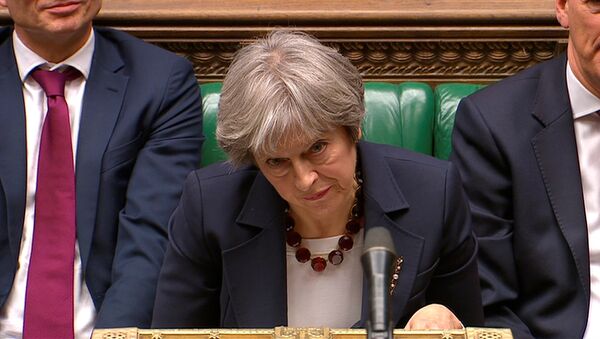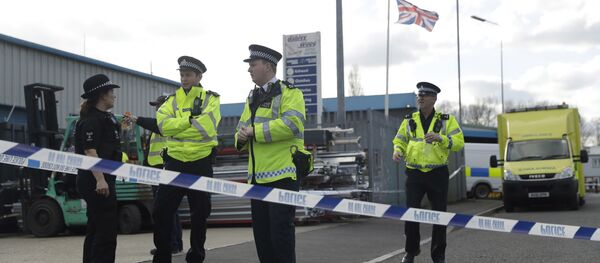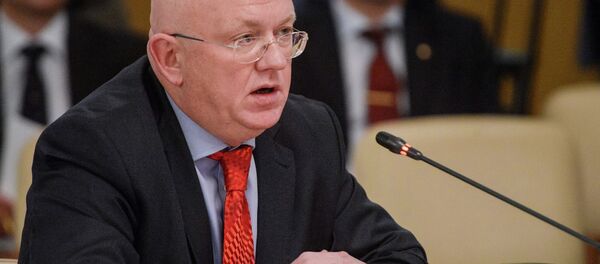Now, let's take a breath and recall the signposts so far of this turboscandal.
by Viktor Marakhovsky
On the evening of March 4, near a pizzeria in the rural UK, a middle aged man and a young woman were found unconscious. By the morning of March 5, everyone knew the man was the former GRU colonel and former UK intelligence spy Sergei Skripal and the woman his daughter.
Four days later, on March 12, British Prime Minister Theresa May announced that British scientists had identified the poison: it is something like "Novichok," which was produced in the USSR in the 1970s. No one but Russia has the formula for the poison, she said. Immediately, from where she stood, May put forward an ultimatum demanding Russia provide a full and complete explanation of Skripal's poisoning before midnight on March 13. And then, she said, we will decide whether Russia is just plain evil or simply doesn't have its chemical weapons under control.
If the explanation was not found convincing enough, then the incident was to be deemed equivalent to a use of force against the United Kingdom — with all the consequences.
Russia, amazingly, did not go out of its way to explain itself after this public calling on the carpet. Answering a question from the BBC, President Vladimir Putin instead recommended the UK "sort things out" itself before bothering the massive nuclear power. The Russian Foreign Ministry politely asked, in accordance with the Chemical Weapons Convention, for British authorities to provide access to investigation materials, for a sample of the nerve agent and for at least some concrete information.
This humiliating demand to abide by international norms was, of course, ignored by the UK.
In the meantime, the world discovered that May lied a bit. For one, Russia destroyed its stock of chemical weapons a long time ago, ahead of schedule (unlike the US, which is still in possession of its chemical weapons). Besides, the creator of the Novichok nerve agent emigrated to the US some 20 years ago; 10 years ago he published a book in which he described the nerve agent's precursors. The substance is far from cloaked in secrecy these days. And so on.
Meanwhile, the UK was met with helping hands from every here and there: the first ones to stand by it unconditionally were the Baltic Tigers and Poland (honestly, it would be strange if that were otherwise). Later — not so unconditionally — France and Germany "expressed support." The last to support to the victimized UK was US Secretary of State Rex Tillerson. That may not matter much, as he was sacked hours later.
In the meantime, the UK Foreign Office issued a pensive propaganda video, insisting that Russia was aiming to "undermine the world order."
And on Wednesday, the world saw what it saw.
There were no options left: Skripal was poisoned by Russia, May said. We gave Russia a chance to explain itself, but it didn't. In fact, Russia has been meddling everywhere with its hackers, armed forces and propaganda (one can almost hear the MPs shouting "and missing flight MH17!"). It's time to provide a hard and decisive response, she fumed. We will expel 23 Russian diplomats (the MPs shout "expel the ambassador, too, he is also meddling and influencing"). We will also revoke an invitation to Russian Foreign Minister Sergey Lavrov. We won't send our royal family and the government delegation to the World Cup (MPs: "Why not take the whole World Cup away from Russia?") No, we can't do that.
But we will discuss our mutual energy independence with Europe (MPs: "If Berlin is our ally, make it refuse Nord Stream 2!"). We will call a NATO meeting to discuss the issue ("Let Russia fear our actions!") Perhaps we might even start seizing Russian state assets if we decide that they are being used against our country. The Russian economy is only half as big as ours — let's make it even smaller (we remain curious as to where May found these figures, considering the Russian economy is only one third smaller than the UK's in terms of GDP and, if counted by purchasing power parity, it's actually twice as big as Britain's). Nonetheless, together with the whole world, we will deter Russia's aggression
Applause, ovations, the MPS have their new Iron Lady.
I've condensed this, but I haven't invented anything.
And now — the preliminary conclusions.
And what of the investigation? The answer to all questions is one and the same: "Russia undermines the world order."
Western European leaders elegantly inform us that using chemical weapons is very bad and that the issue demands a deep and thorough investigation. They call on Russia to "take part."
Russia's Foreign Ministry, meanwhile, suggests somebody ask one of the grown-ups to read the Chemical Weapons Convention and communicate in accordance with international law.
Gazprom has announced it is closing its office in London and ceasing operations there.
And analysts, of course, are on hand to offer opinions on "what was that?" and "why did they just embarrass themselves like that?"
We will point out only one aspect of all this: the whole world's bewilderment is based on one simple thing. The world is shocked by the difference between how it used to imagine the UK and what it saw in reality this month. If instead of the UK it was Ukraine behaving this way, or some other country we all already know to be mad, nobody would have cared.
The reality has been shown to be something more like Monty Python, perhaps accompanied by the Benny Hill theme. The Iron Lady shrieks, "Oh God! Someone poisoned the spy!" The Iron Lady issues a hasty ultimatum. Crickets chirping.
The Iron Lady calls on Berlin to cancel the gas pipe, or NATO to come up with something. More crickets.
It may be a surprise to us, but it's all completely normal. History holds so many examples of a great cultures outliving the greatness of the country that created them. It was the ancient Romans who, while admiring Greek culture, were bewildered by how pathetic the Hellenes of their own age were; Mark Twain was shocked by the difference between the Italy of operas and museums and the Italy he saw in reality.
And we live in the 21st century, in which two Britains coexist: one real Britain, where the prime minister throws tantrums and demonstrates comical logic — and another, imaginary Britain, where supermen still sit in tweed jackets, drink tea with restraint and deviously plot conspiracies.
The opinions expressed are those of author only and do not necessarily reflect the position of Sputnik News.





